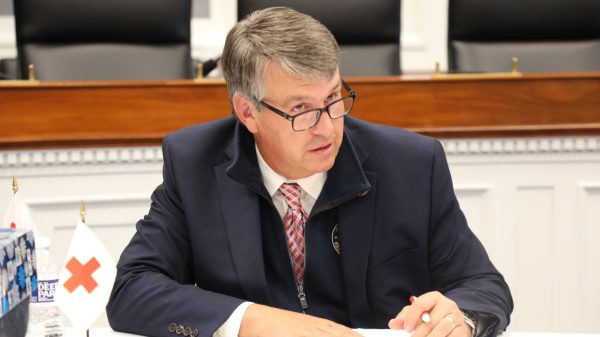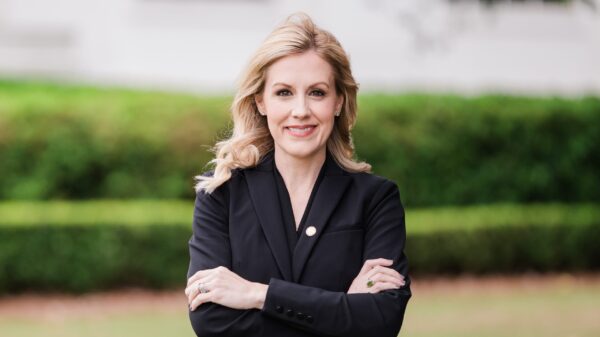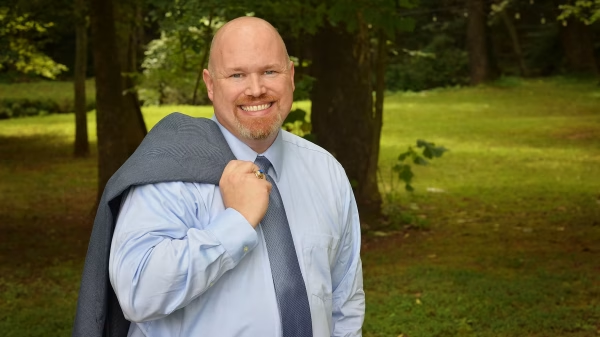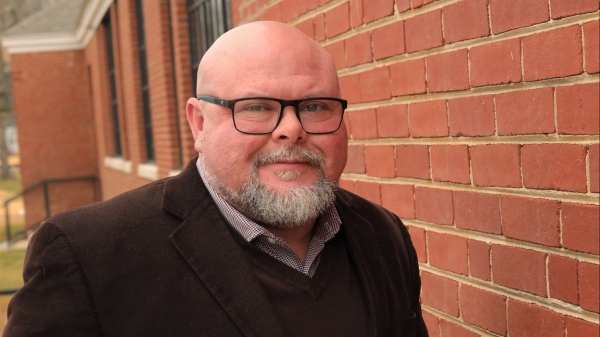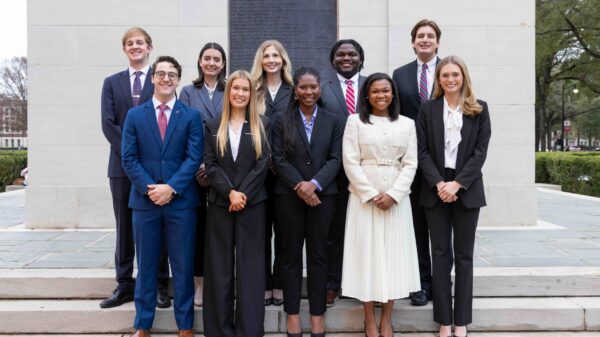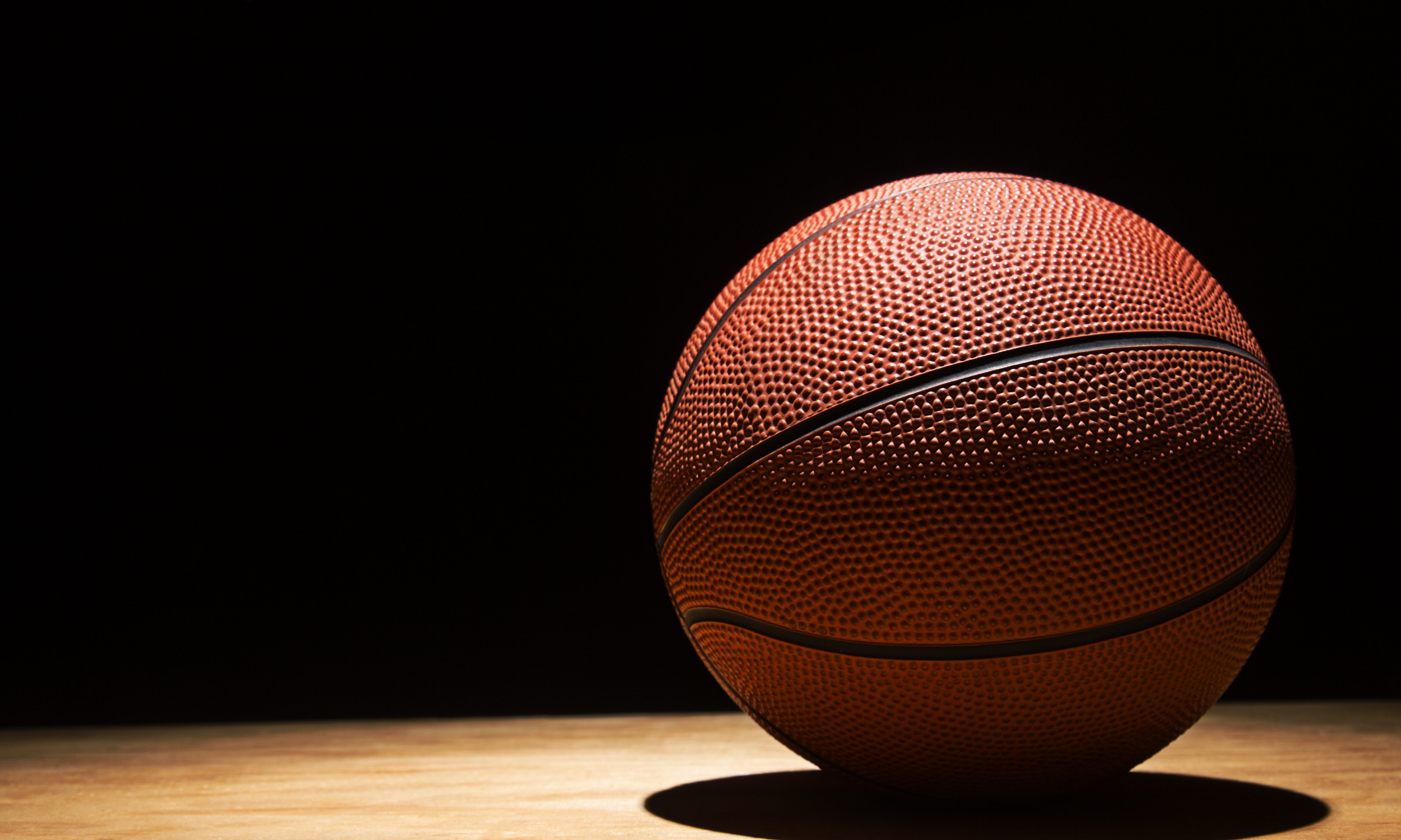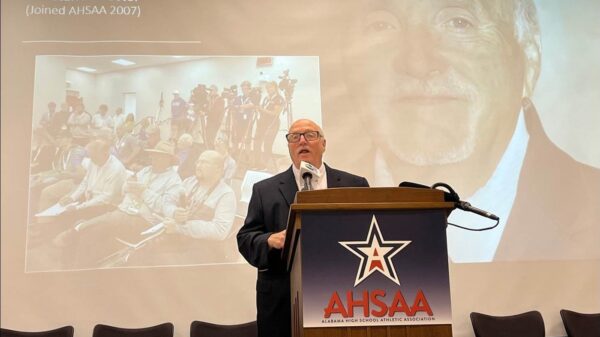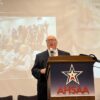Maori Davenport is the victim.
On that point, pretty much everyone agrees.
The talented senior basketball player from Troy’s Charles Henderson High has been suspended for her senior year for accepting and cashing an $857.20 check from USA Basketball — a “lost wages” payment mistakenly sent to Davenport.
The question is who’s to blame.
For the past week, most of the country has decided to assign blame to the Alabama High School Athletic Association, which issued the ruling suspending Davenport.
Everyone from ESPN analyst Jay Bilas to Golden State Warriors center (and Alabama native) DeMarcus Cousins has spent time roasting the AHSAA for its “unfair” and “outrageous” actions, and calling on executive director Steve Savarese to overturn the decision and let Davenport play.
But documents obtained by APR, along with interviews with two sources directly involved in Davenport’s hearings before the AHSAA boards, paint a much different picture of the ordeal, and help explain why two separate boards — made up of various principals and athletic directors from around the state — each ruled Davenport ineligible after lengthy hearings.
The most damaging evidence, according to the sources, was the sequence of events surrounding the payment from USA Basketball to Davenport, including the fact that Davenport’s mother Tara, an AHSAA-sanctioned head coach at Charles Henderson Middle School who should know the basic amateurism rule, cashed the check even after raising questions about it with a Team USA Basketball coach.
Neither she nor Charles Henderson head coach Dyneshia Jones contacted the AHSAA before the money was deposited.
Tara Davenport also refused to turn over to the AHSAA correspondence between herself and USA Basketball about the payment, according to sources — an indication, they felt, that Tara Davenport was aware that the money was illegal under AHSAA rules long before it was reported and returned.
“It was clear that they knew, or should have known, that they were doing something they shouldn’t,” a source said.
Evidence presented at that hearing, and obtained by APR, also reveals a much different timeline than the one presented in media stories about the issue, which have routinely described the Davenports as returning the money “almost immediately” and noting that USA Basketball contacted the AHSAA after discovering its error. In fact, the money wasn’t returned for 91 days, and only after USA Basketball contacted the AHSAA and informed it of the improper payment, the records show.
Maori Davenport was issued the $857 check on Aug. 15, and it was deposited in a bank account on Aug. 28, according to records obtained by APR. At that point, Davenport was uncommitted but had narrowed her choices to Rutgers, Georgia, Mississippi State, Florida and Louisville, whose head coach, Jeff Walz, was coaching the Team USA U18 team.
In late October, Davenport announced she was committing to Rutgers. A couple of weeks later, Tara Davenport was informed that Team USA was going to have to report the improper payment to the AHSAA. It did so in late November, a few days before the Davenports repaid the money on Nov. 28.
“At that point, the AHSAA’s hands are pretty much tied,” said one source. “The rule is clear and they violated the rule. Not a person in that room wanted (Davenport) to not play her senior year, but the rule was broken. It’s a shame she’ll have to pay for the actions of others, but that’s usually the case in high school athletics — the kids are the ones who pay the price for the adults who break the rules.”
The four-person District 2 board of the AHSAA first took up the matter, and it voted unanimously to rule Davenport ineligible. That decision was appealed to the 15-member Central Board, made up of nine high school principals, five high school athletic directors and one district superintendent from school systems all around the state. It also voted unanimously to rule Davenport ineligible.
The AHSAA’s amateurism rule — a 40-year-old rule — limits the compensation that an amateur athlete can receive to $250. AHSAA leadership has pushed in recent years to increase that to at least $500 but the AHSAA legislative council, which sets the association’s rules, has declined.
That council, which is made up of member schools, writes and approves all rules and rule changes. Which means executive director Steve Savarese has no authority in this matter, despite what Bilas and others might believe.
Alabama’s amateurism rule also isn’t an outlier. Two other USA Basketball U18 players, Anaya Peoples from Illinois and Aijha Blackwell from Missouri, also mistakenly received money.
As noted by many, Peoples was cleared in Illinois after repaying the money. But a letter sent by the director of that state’s association to the AHSAA said it would have ruled Peoples ineligible for the season had she cashed her check. Instead, upon receiving it, Peoples contacted the state high school athletic commission to ask about its legality. She then followed the Illinois association’s instructions for returning the money, which kept her eligibility intact.
Blackwell remains ineligible in Missouri, because she cashed the check. She is currently attempting to transfer from a private school in order to pay to reimburse USA Basketball the $857.20, hopeful that her eligibility will be restored.
In the end, Davenport’s story is like most of the stories of high school athletes who are declared ineligible because of rules violations: She’ll pay a hefty price for the mistakes and purposeful acts of adults who should know better and do better.

